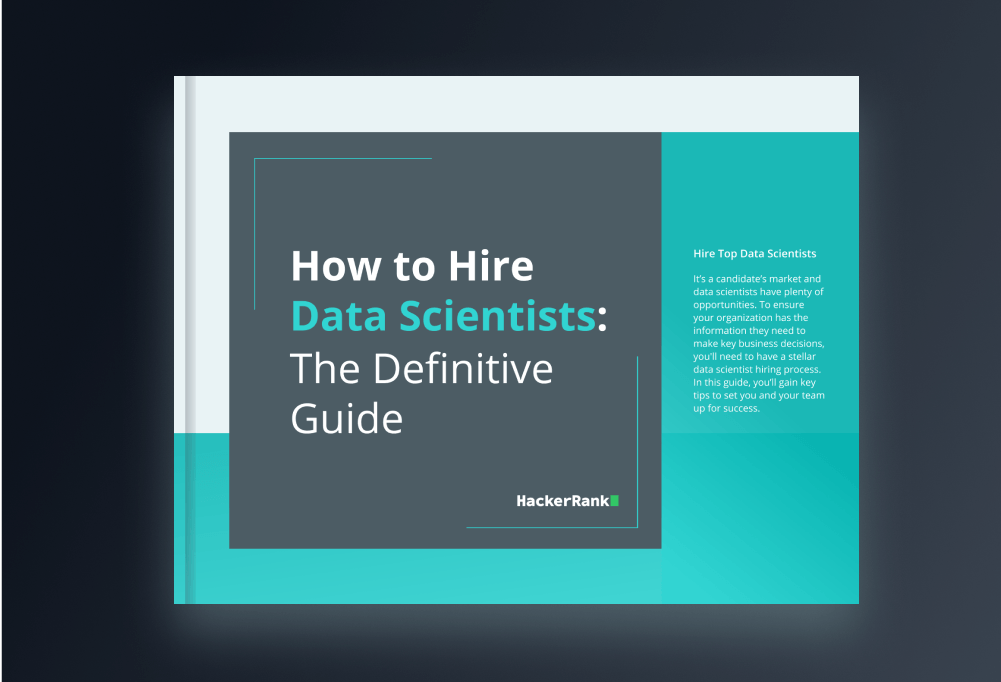Developer Skills: AI
How skills and skill-based talent strategies are adjusting to the AI Revolution.
Introduction
AI has been gaining momentum over the last decade, and OpenAI's ChatGPT catapulted it to mainstream attention in late 2022. AI has always been poised to be a significant growth area for tech, and over the past several months, the broader world has come to that realization.
What does this rapid innovation mean for developers? What does it mean for businesses? To find out, we surveyed over 42,000 developers to understand how they’re responding to AI. We also took a deep dive into job descriptions and our own platform data to see how companies are tweaking their skills-based talent strategies to find and nurture AI-related skills.
Key Developer community findings
What do developers think about AI?
We surveyed over 42,000 members of our developer community on LinkedIn during February and March 2023 to understand how they are responding to the AI revolution.
Our findings? Developers are quickly evolving their skills to keep up with advancements in AI. 82% of respondents believe AI will redefine the future of coding and software development, with 75% of developers adjusting their skills in anticipation of this seismic shift.
82% of developers think AI will change work as we know it.
Q: Will AI redefine the future of work, or end up being mostly hype?
75% of developers will be adjusting their skills in response to the growth of AI.
Q: With the growth of AI, are you adjusting your skills?
More than 4 out of 5 developers are already experimenting with AI products.
Q: Have you played around with any AI technology (ChatGPT, DALL-E, Midjourney, etc)?
55% of developers are already using AI assistants at work.
42% of developers point to data analysis as a key AI-related skill.
"We’ve entered an AI revolution that is poised to change the very nature of what it means to be a developer and write code. I see the result of this revolution as faster innovation than ever before, the democratization of development, and expanded opportunities for developer creativity. And this is just the tip of the iceberg."
Vivek Ravisankar
Co-Founder and CEO| HackerRank
Key Research findings
What does hiring data say about AI-related skills?
To understand how businesses are adjusting their skills-based talent strategies around AI, we looked at nearly 1,000 job descriptions for AI-related roles and extracted relevant skills data using machine learning. We also examined our platform data to understand the skills companies are actively testing for based on HackerRank question attempts, test creations, and assessment invites.
In evaluating these two data sources, we found a gap between the AI-related skills companies are looking for and the skills they are testing for. Job description skills tend to be more tangible and technical, while the skills tested in assessments are more conceptual.
Top 10 most in-demand skills for AI-related roles based on job postings.
1. Machine Learning
2. Python
3. PyTorch
4. TensorFlow
5. Deep Learning
6. AWS
7. SQL
8. Java
9. AI
10. Data Science
1. Machine Learning
2. Python
3. PyTorch
4. TensorFlow
5. Deep Learning
6. AWS
7. SQL
8. Java
9. AI
10. Data Science
Machine learning is an umbrella skill that precedes others skills in job descriptions. That’s why it’s so much more prevalent than more specific skills.
Removing the ML catch-all, the next 5 responses show demand for skills that can build and productionize ML applications.
Yet in assessments, employers fall back on more general topics. Of the top 5 skills tested for AI-related roles, 4 are conceptual.
1. Problem Solving
2. SQL
3. Statistics
4. Machine Learning
5. Applied Math
Mind the AI Skills Gap
Employers are looking for precise skill sets when they are hiring for AI-related roles, but they are not testing for those skills. Instead, they fall back on general, conceptual topics. Python only accounts for about 7% of question attempts. PyTorch and TensorFlow combined account for less than 1%, and AWS does not appear at all.
Leaning too heavily on general and conceptual questions can create blind spots in a team’s capabilities, put key initiatives at risk, and undermine skills-based talent strategies.
“Over-emphasizing theoretical ML knowledge in assessments and interviews is a common mistake. Teams often neglect core software engineering skills when evaluating ML engineers.
As AI-based products become more mainstream, it's crucial to put equal emphasis on software development skills. They are key to building practical, scalable, and reliable ML applications that can be deployed effectively in the real world.”
Ankit Arya
Principal Product Manager| Machine Learning at HackerRank
Test creations with AI-related questions jumped 81% after ChatGPT launched, suggesting business interest in hiring for AI skills.
AI-related fields are projected to see substantial growth over the next several years.
Conclusion
The AI Revolution is here.
AI has already captured the attention of developers. 82% think AI will change how they work, and 75% will be adjusting their skills in anticipation of this seismic shift. Engineering teams are adopting AI tools, as well, with 55% of developers already using AI assistants at work. These assistants are transforming key elements of development work—automating many repetitive tasks and creating space for more abstract thinking and creative problem-solving.
For employers, there’s emerging pressure to find, hire, and nurture teams with the skills needed to fuel opportunities unlocked by AI. HackerRank’s developer skills assessments are critical to validating technical talent, and we found the creation of new assessments with AI-related questions has increased by 81% since ChatGPT’s public launch in November 2022.
Our report also uncovered a gap between the skills companies are seeking, and those they are testing for. Continuing to test more general, conceptual skills could lead to capability shortfalls, particularly concerning productionizing machine learning applications.
The AI revolution isn’t something that’s coming. It’s already here. It’s changing the ways developers build products, and it’s changing how developers are hired and upskilled. At HackerRank, we’re excited by a future driven by AI, and it’s potential to help developers reach new heights of innovation.
You're viewing a limited version of this report.
Fill out the form to see all insights.
(We'll also send you a PDF copy of the report via email.)
By submitting this form, you agree to our privacy policy.
Don't worry: we'll never sell or share your data with a third party.
Find the AI skills your business needs.
See HackerRank in action and build stronger teams in an AI-powered world.



